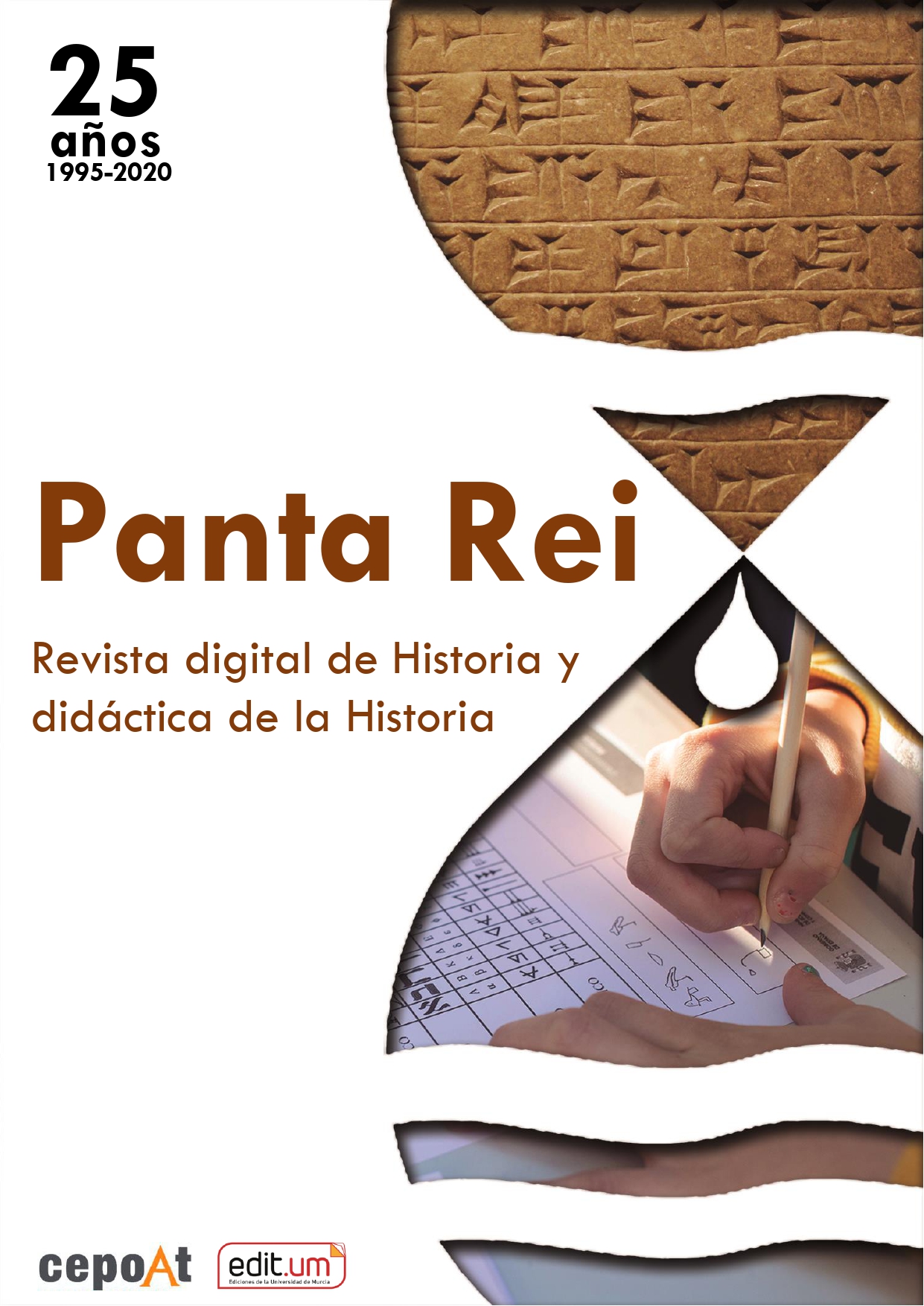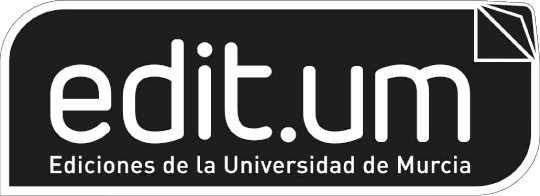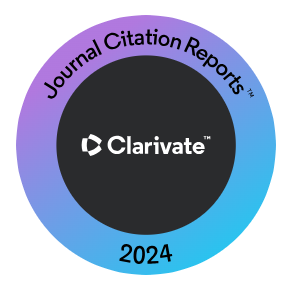Armed Conflicts and their Treatment in Education: Analysis of the Scientific Production of the Last 25 Years in the Web of Science
Supporting Agencies
- Vicerrectorado de Innovación, Compromiso Social y Acción Cultural de la Universidad del País Vasco (UPV-EHU). Proyecto de Innovación Educativa Memoria y convivencia (HBP2019-20/102)
- Grupo de Investigación en Arqueología Medieval, Patrimonialización y Paisajes Culturales/Erdi Aroko Arkeologia, Ondaregintza eta Kultur Paisaiak Ikerketa Taldea de la UPV/EHU (IT1193-19)
- Grupo de Investigación Sociedad Poder y Cultura (XIV-XVIII) (IT-819-16)
Abstract
In this work, a bibliometric review is carried out on studies that deal with the treatment of politically-motivated armed conflicts in education, with the aim of obtaining an outline of what is currently being done on the international scene. To this end, a search and analysis of studies associated with the teaching of social sciences and citizenship education in Web of Science (WOS) has been undertaken. The final sample, comprising 128 studies, denotes a growth in research on the subject in recent years and the use of multiple methodologies and approaches. It also presents a rich panorama in terms of conflict scenarios and issues addressed. Finally, it points out the usefulness of bringing these issues into the classroom in order to promote the peaceful coexistence and reconciliation in societies affected by violent conflicts.
Downloads
-
Abstract1736
-
PDF (Español (España))960
-
EPUB (Español (España))240
References
Akar, B. (2016). Dialogic pedagogies in educational settings for active citizenship, social cohesion and peacebuilding in Lebanon. Education Citizenship and Social Justice, 11(1), 44-62.
Akar, B., y Albrecht, M. (2017). Influences of nationalisms on citizenship education: revealing a "dark side' in Lebanon. Nations and Nationalism, 23(3), 547-570.
Albas, L., Ibañez-Etxeberria, A., Echeberria, B. y Vicent, N. (en prensa). El tratamiento de la violencia en las aulas en el País Vasco. Análisis exploratorio de la implementación del módulo educativo Adi-Adian en la formación inicial del profesorado de Educación Infantil.
Aranguren, O. e Ibañez-Etxeberria, A. (2020). Euskal kasuari lotutako motibazio politikoko indarkeriaren trataera Hezkuntzan: Adi-Adian Hezkuntza Modulua Haur Hezkuntza Graduko irakaslegaiengan. En Gamito Gómez, R., Martínez Abajo, J., y Vizcarra Morales, M. T. (Eds.), XXVI Jornadas de Investigación en Psicodidáctica (pp. 219-231). Leioa: Universidad del País Vasco.
Arias Ferrer, L., Egea Vivancos, A., Sánchez Ibáñez, R., Domínguez Castillo, J., García Crespo, F. J., y Miralles Martínez, P. (2019). Forgotten history or history not taught? The students of Spanish High School and their lack of knowledge about the Civil War. Revista Complutense de Educacion, 30(2), 461-478. doi: 10.5209/RCED.57625
Baliqi, B. (2017). The Aftermath of War Experiences on Kosovo's Generation on the Move - Collective Memory and Ethnic Relations among Young Adults in Kosovo. Zeitgeschichte, 44(1), 6-19.
Baliqi, B. (2018). Contested war remembrance and ethnopolitical identities in Kosovo. Nationalities Papers-the Journal of Nationalism and Ethnicity, 46(3), 471-483.
Banks, J. A. (2017). Failed Citizenship and Transformative Civic Education. Educational Researcher, 46(7), 366–377. doi: 10.3102/0013189X17726741
Barton, K. C. (2015). Young adolescents' positioning of human rights: Findings from Colombia, Northern Ireland, Republic of Ireland and the United States. Research in Comparative and International Education, 10(1), 48-70.
Baytiyeh, H. (2017). Has the Educational System in Lebanon Contributed to the Growing Sectarian Divisions?. Education and Urban Society, 49(5), 546-559.
Bellino, M. J. (2015). The Risks We Are Willing to Take: Youth Civic Development in "Postwar" Guatemala. Harvard Educational Review, 85(4), 537-561.
Bellino, M. J. (2016). So That We Do Not Fall Again History Education and Citizenship in "Postwar" Guatemala. Comparative Education Review, 60(1), 58-79.
Bermúdez, Á. y Martínez, D. A. (2018). The narrative framing of violence in teaching resources about the Spanish Conquest of America. Panta Rei: revista de ciencia y didáctica de la historia, 8, 93-118. doi: 10.6018/pantarei/2018/5
Bickmore, K., Kaderi, A. S., y Guerra-Sua, A. (2017). Creating capacities for peacebuilding citizenship: history and social studies curricula in Bangladesh, Canada, Colombia, and Mexico. Journal of Peace Education, 14(3), 282-309.
Brown, A. L., y Brown, K. D. (2010). Strange Fruit Indeed: Interrogating Contemporary Textbook Representations of Racial Violence Toward African Americans. Teachers College Record, 112(1), 31-67.
Calaf, R., Gutiérrez Berciano, S., y Suárez Suárez, M. Á. (2020). La evaluación en la Educación Patrimonial. 20 años de investigaciones y Congresos de ICOM. Aula Abierta, 49(1), 55-64. doi: 10.17811/rifie.49.1.2020.55-64
Carrera-Díaz, P. E. (2018). Research for action, action for research with victims of armed conflict in Soacha, Colombia. Prospectiva, 25, 163-186.
Darrow, M. H. (2008). In the land of Joan of Arc: The civic education of girls and the prospect of war in France, 1871-1914. French Historical Studies, 31(2), 263-291.
Darweish, M., y Mohammed, M. A. (2018). History education in schools in Iraqi Kurdistan: representing values of peace and violence. Journal of Peace Education, 15(1), 48-75.
Davids, N., y Waghid, Y. (2015). On speaking to violence in post-apartheid schools. Tydskrif Vir Geesteswetenskappe, 55(4), 681-693.
Davids, N., y Waghid, Y. (2016). Higher education as a pedagogical site for citizenship education. Education Citizenship and Social Justice, 11(1), 34-43.
de Alba Fernández, N., García Pérez, F. F. y Santisteban Fernández, A. (Eds.) (2012). Educar para la participación ciudadana en la enseñanza de las ciencias sociales. Sevilla: AUPDCS, Díada editora.
del Pozo Serrano, F. J. (2016). Social School Pedagogy in Colombia: the Model of Universidad Del Norte on School Management and Teaching Training for Citizenship and Peace. Revista Iberoamericana de Educación, 70, 77-90.
Delgado Algarra, E. J. y Estepa Giménez, J. (2018). Citizenship and dimensions of memory in the learning of history: analysis of a High School Education case. Vínculos de Historia, 7, 366-388.
Dvir, Y., Yemini, M., Bronshtein, Y. y Natur, N. (2018). International education as a novel entity in a public education system: the establishment of a new public international school in Israel. Compare-a Journal of Comparative and International Education, 48(6), 935-953.
Emerson, A. (2018). The making of the (Il)legitimate citizen: the case of the Pakistan Studies textbook. Global Change Peace & Security, 30(3), 295-311.
Emerson, A. (2018). Educating Pakistan's Daughters: Girls' Citizenship Education and the Reproduction of Cultural Violence in Pakistan. Studies in Social Justice, 12(2), 291-309.
Emkic, E. (2018). Peace Education in Bosnia and Herzegovina. Reconciliation and Education in Bosnia and Herzegovina: from Segregation to Sustainable Peace, 13, 37-49.
Etxeberria-Mauleon, X. (2018). The presentation of victims in civic education in situations of socio-political transition from violence to peace. Quaestiones Disputatae, 11(23), 189-217.
Eurydice (2012). La educación para la ciudadanía en Europa. España: Ministerio De Educación, Cultura y Deporte.
Finkel, S. E., Horowitz, J. y Rojo-Mendoza, R. T. (2012). Civic Education and Democratic Backsliding in the Wake of Kenya's Post-2007 Election Violence. Journal of Politics, 74(1), 52-65.
Fontal, O. (2016). The Spanish Heritage Education Observatory. Cultura y Educación, 28(1), 254.
Fontal, O. e Ibañez-Etxeberria, A. (2017). La investigación en Educación Patrimonial. Evolución y estado actual a través del análisis de indicadores de alto impacto. Revista de educación, 375, 184-214.
Gobierno Vasco (s.f.). Módulo educativo Adi-Adian. Aprendizajes de dignidad humana, convivencia y empatía mediante una experiencia de escucha de testimonios de víctimas. https://www.euskadi.eus/gobierno-vasco/-/modulo-adi-adian/
Gobierno Vasco (2008). Plan Vasco de Educación para la Paz y los Derechos Humanos (2008-2011).
Gobierno Vasco (2010). Plan de Convivencia Democrática y Deslegitimación de la violencia (2010-2011). Reformulación del Plan Vasco de Educación para la Paz y los DD.HH. (2008-2011). https://www.euskadi.eus/gobierno-vasco/-/plan-gubernamental/2-convivencia-democratica-y-deslegitimacion-de-la-violencia-20102011/
Gobierno Vasco (2013). I Plan de Paz y Convivencia 2013-16. Un objetivo de encuentro social. https://www.euskadi.eus/documentos-paz-convivencia/web01-s1lehbak/es/
Gobierno Vasco (2017). Plan de Convivencia y Derechos Humanos 2017-2020. Un objetivo de encuentro social, la opción por la empatía. https://www.euskadi.eus/documentos-paz-convivencia/web01-s1lehbak/es/
Gómez-Carrasco, C. J., López-Facal, R. y Rodríguez-Medina, J. (2019). La investigación en Didáctica de las Ciencias Sociales en revistas españolas de Ciencias de la Educación. Un análisis bibliométrico (2007-2017). Didáctica de las Ciencias Experimentales y Sociales, 37, 67-88.
Goren, H. y Yemini, M. (2016). Global citizenship education in context: teacher perceptions at an international school and a local Israeli school. Compare-a Journal of Comparative and International Education, 46(5), 832-853.
Goren, H., Maxwell, C. y Yemini, M. (2019). Israeli teachers make sense of global citizenship education in a divided society- religion, marginalisation and economic globalisation. Comparative Education, 55(2), 243-263.
Guerra-Sua, A. M. (2019). Challenges for Peacebuilding and Citizenship Learning in Colombia. Magis-Revista Internacional de Investigacion en Educacion, 11(23), 169-186.
Jerome, L. y Elwick, A. (2019) Teaching about terrorism, extremism and radicalisation: some implications for controversial issues pedagogy. Oxford Review of Education.
Jiménez Martínez, M. D. y Felices de la Fuente, M. M. (2018). Cuestiones socialmente vivas en la formación inicial del profesorado: la infancia refugiada siria como problemática. REIDICS, 3, 87-102.
Keynes, M. (2019). History Education for Transitional Justice? Challenges, Limitations and Possibilities for Settler Colonial Australia. International Journal of Transitional Justice, 13(1), 113-133.
Lee, J., y Elwick, A. (2019). Identifying an Educational Response to the Prevent Policy: Student Perspectives on Learning about Terrorism, Extremism and Radicalisation. British Journal of Educational Studies, 67(1), 97-114.
López Facal, R. y Santiadrián, V. M. (2011). Los “conflictos sociales candentes” en el aula. Íber. Didáctica de las Ciencias Sociales, Geografía e Historia, 69, 8-20.
McGhee, D. y Zhang, S. (2017). Nurturing resilient future citizens through value consistency vs. the retreat from multiculturalism and securitisation in the promotion of British values in schools in the UK. Citizenship Studies, 21(8), 937-950.
Mvukiyehe, E. y Samii, C. (2017). Promoting Democracy in Fragile States: Field Experimental Evidence from Liberia. World Development, 95, 254-267.
Nygren, T. y Johnsrud, B. (2018). What Would Martin Luther King Jr. Say? Teaching the Historical and Practical Past to Promote Human Rights in Education. Journal of Human Rights Practice, 10(2), 287-306.
Pineda-Alfonso, José A. (2015). Educar para la ciudadanía trabajando con temas controvertidos en Educación Secundaria Obligatoria. Revista de Investigación Educativa, 33(2), 353-367.
Philippou, S. (2009). What makes Cyprus European? Curricular responses of Greek-Cypriot civic education to 'Europe'. Journal of Curriculum Studies, 41(2), 199-223.
Philippou, S. y Theodorou, E. (2019). Collapsing the Supranational and the National. From Citizenship to Health Education in the Republic of Cyprus. En A. Rapoport (ed.), Competing Frameworks. Global and National in Citizenship Education (pp. 95-114). USA: Information Age Publishing.
Reyes, M. J., Cruz, M. A. y Aguirre, F. J. (2016). Places of memory and the new generations: Some political effects of the transmission of memories of Chile's recent past. Revista Española de Ciencia Política-RECP, 41, 93-114.
Rubin, B. C. (2016). We Come to Form Ourselves Bit by Bit: Educating for Citizenship in Post-Conflict Guatemala. American Educational Research Journal, 53(3), 639-672.
Rubin, B. C. y Cervinkova, H. (2019). Challenging Silences: Democratic Citizenship Education and historical Memory in Poland and Guatemala. Anthropology & Education Quarterly, 0(0), 1-17.
Russell, S. G., Sirota, S. L. y Ahmed, A. K. (2019). Human Rights Education in South Africa: Ideological Shifts and Curricular Reforms. Comparative Education Review, 63(1), 1-27.
Santisteban Fernández, A. (2019). La enseñanza de las Ciencias Sociales a partir de problemas sociales o temas controvertidos: estado de la cuestión y resultados de una investigación. El Futuro del Pasado, 10, 57-79.
Seixas, P., Peck, C. y Poyntz, S. (2011). 'But we didn't live in those times': Canadian students negotiate past and present in a time of war. Education as Change, 15(1), 47-62.
Sen, A. (2019). Militarisation of citizenship education curriculum in Turkey. Journal of Peace Education, 16(1), 78-103.
Skaras, M. (2019). Constructing a national narrative in civil war: history teaching and national unity in South Sudan. Comparative Education, 55(4), 517-535.
Stoddard, J. D. (2009). The Ideological Implications of Using "Educational" Film to Teach Controversial Events. Curriculum Inquiry, 39(3), 407-433.
Suárez, D. F. (2008). Rewriting citizenship? Civic education in Costa Rica and Argentina. Comparative Education, 44(4), 485-503.
Teeger, C. (2015). "Both Sides of the Story": History Education in Post-Apartheid South Africa. American Sociological Review, 80(6), 1175-1200.
Thomas, P. (2016). Youth, terrorism and education: Britain's Prevent programme. International Journal of Lifelong Education, 35(2), 171-187.
Toledo Jofré, M., Magendzo Kolstrein, A., Gutiérrez Gianella, V. e Iglesias Segura, R. (2015). Enseñanza de 'temas controversiales' en la asignatura de historia y ciencias sociales desde la perspectiva de los profesores. Estudios pedagógicos (Valdivia), 41(1), 275-292. doi: 10.4067/S0718-07052015000100016
Tse, K. (2001). Society and citizenship education in transition: the case of Macau. International Journal of Educational Development, 21(4), 305-314.
Usón González, I. (2017). Terrorismo y vulneraciones de Derechos Humanos de motivación política en el caso vasco: estudio exploratorio sobre los conocimientos y la valoración ética de la juventud universitaria vasca. Deusto Journal of Human Rights, 2, 121-148. doi: 10.18543/djhr-2-2017pp121-148
Wills, J. S. (2019). Silencing Racism: Remembering and Forgetting Race and Racism in 11th-Grade US History Classes. Teachers College Record, 121(4), 040308.
Zembylas, M., Charalambous, P., Charalambous, C., y Lesta, S. (2016). Human rights and the ethno-nationalist problematic through the eyes of Greek-Cypriot teachers. Education Citizenship and Social Justice, 11(1), 19-33.
Copyright (c) 2020 Naiara Vicent, Janire Castrillo, Alex Ibañez-Etxeberria, Leire Albas

This work is licensed under a Creative Commons Attribution-ShareAlike 4.0 International License.
All the contents published in this journal are subject to an Attribution-ShareAlike 4.0 International (CC BY-SA 4.0) Creative Commons License. You are free to: Share — copy and redistribute the material in any medium or format, Adapt — remix, transform, and build upon the material, for any purpose, even commercially. Under the following terms:
Attribution — You must give appropriate credit, provide a link to the license, and indicate if changes were made. You may do so in any reasonable manner, but not in any way that suggests the licensor endorses you or your use.
ShareAlike — If you remix, transform, or build upon the material, you must distribute your contributions under the same license as the original.
Full text of the license is available in: Creative Commons License 












